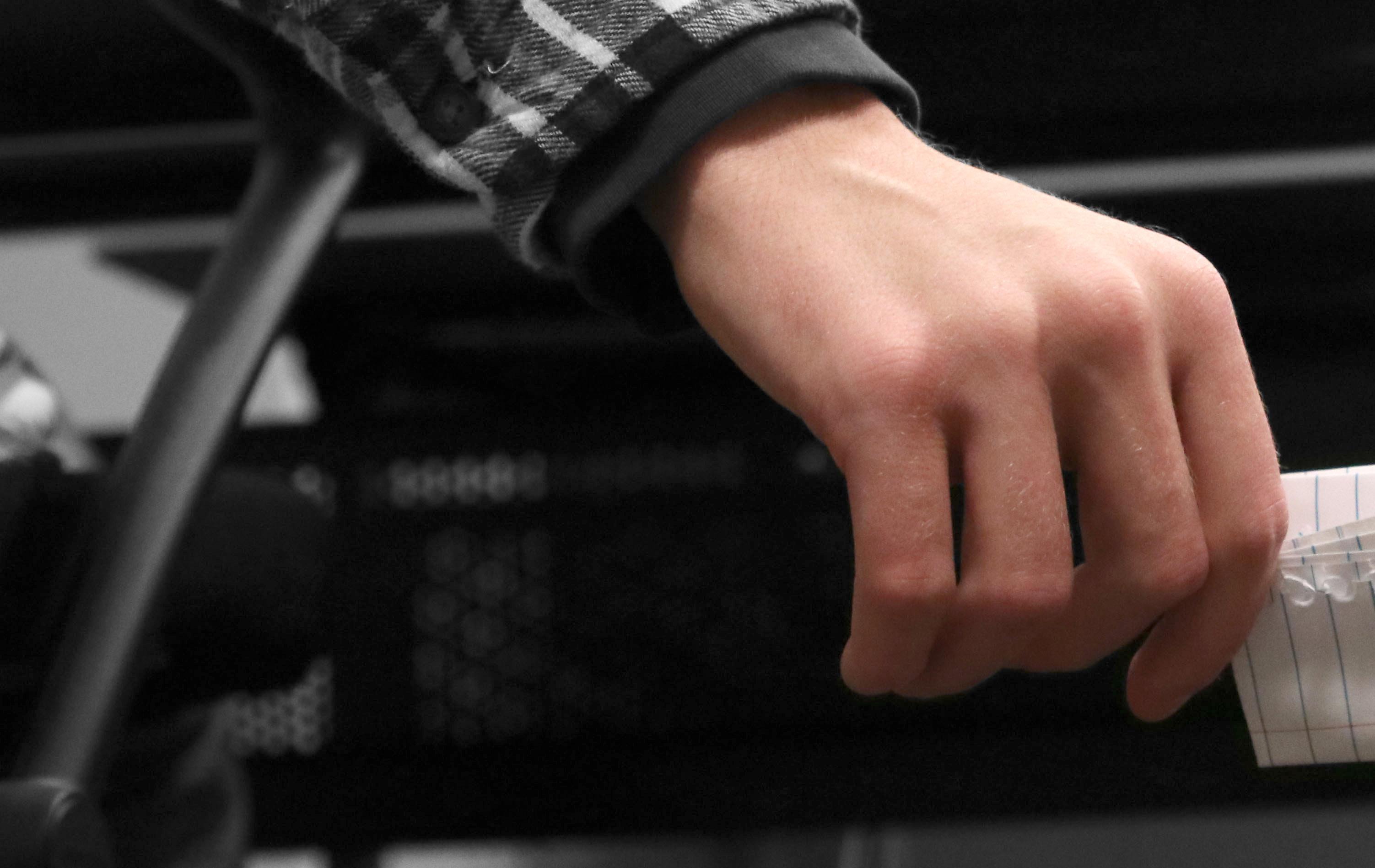
1 minute read
joan downey


Advertisement




UNDER THE TABLE
As time is ticking down, a whole page of the test sits in front of you, left blank with questions you don’t know the answer to. Panic rises in your throat. Your hand slides into your pocket and reaches for your phone as you carefully watch the teacher, hoping you can find the an- swers on your device.
Scenarios like this play out fre- quently in all schools, and the culture of cheating revolves around pressures that students face when it comes to CHEATING CULTURE
their academics. Whether it is from their parents or societal standards, students find themselves cheating to relieve these pressures.
For a senior female—who wishes to remain anonymous to avoid criticism of her opinion on academic dishon- esty—there are two sides to cheating. While she believes that cheating is not putting the effort into a class, she thinks that it is acceptable when an in- dividual is only doing it for minor class assignments.
“If I see someone who constantly cheats... I think they’re cheating them- selves out of an education,” the female
said. “On the other hand, I believe that sometimes, for certain assign- ments, [cheating] is acceptable since assignments have less of an impact on your grade.”
Similarly, for a junior male, who asked to remain anonymous due to his admittance to cheating, sending a picture of a small assignment is more acceptable than cheating on an exam. “[Cheating] on homework, just sending someone a picture, doesn’t matter to me; I do that every day. I haven’t done homework in years,” the male said. “I try not to cheat on tests because I think that is wrong.”










